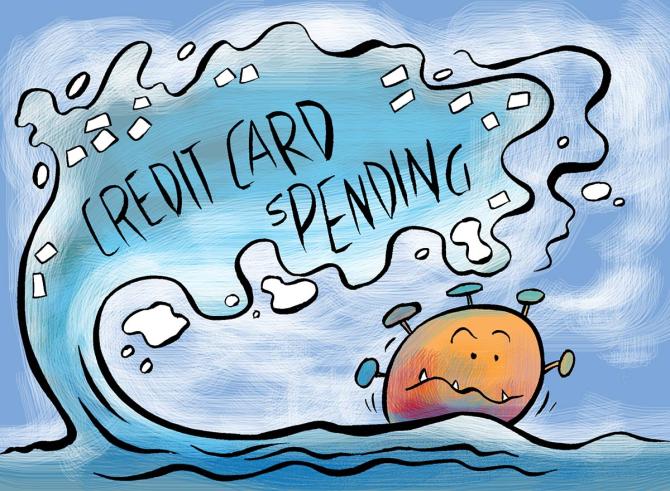The central government has given banks and credit card entities six to eight months to put in place the requisite reporting mechanism and related features to collect tax at source on international credit card transactions, a senior bureaucrat told Business Standard.

According to the bureaucrat, the plan to bring overseas credit cards under the Liberalised Remittance Scheme (LRS) has not been mothballed and is simply being deferred so that banks get adequate time to get the system up and running.
The official expects the reporting mechanism to be ready in the given time, and the rule could be implemented in the next financial year (2024–25, or FY25).
“The Department of Economic Affairs (under the ministry of finance) handled the issue and held several rounds of talks with central banks and bankers.
"Credit card players have also been asked for their input on implementing the said rule,” says another senior official privy to the discussion.
He explains that it requires the essential software to comply with the new rule, along with a disclosure mechanism for authorised dealers and purposes of tax.
According to sources, the government has received some suggestions in this respect, including filing a declaration with the issuer entity within a stipulated time and specifying the nature of expenses incurred in foreign currency for tax collected at source levy.
The Centre is also looking at the issue of determining tax liability, as it doesn’t have a system to differentiate between personal and business visits.
In light of lenders raising concerns about the unpreparedness of their reporting systems to roll out the differential tax collected at source levy for multiple categories such as medical, education, and overseas tour packages, the finance ministry said in its June 28 notification that it would not count international credit card spending towards the LRS limit and for this reason would not attract tax collected at source (TCS).
Even the new levy of 20 per cent on overseas remittances under the scheme, like tour expenses, has been delayed by three months and will come into effect on October 1.
“Banks have been requesting sufficient time to get their systems updated and insert features for effecting tax collected at source on credit cards.
"If the road map given by the finance ministry to banks is to put in place the modified system from next fiscal year (FY25), it should provide a good runway for banks to implement the new tax collected at source rules,” says Sudhir Kapadia, senior tax partner, EY India.
The government, in its Finance Bill 2023, increased the rate of tax collected at source from 5 per cent to 20 per cent for remittances under LRS.
In line with the decision, the government issued a notification on May 16 under the Foreign Exchange Management Act, which effectively imposed a tax collected at source on international card spends in foreign exchange without any threshold.
Amid backlash from various sections of the population, the government on May 19 decided to exempt foreign card payments up to Rs 7 lakh a year from tax collected at source.
These amendments were earlier scheduled to take effect on July 1 this year.
Bankers are still apprehensive about the new regime, as they feel it will impose a compliance burden on them.
Industry experts say that tracking overseas credit card spends and other remittances on a real-time basis is a challenge.
Besides, the nature of credit cards is such that they could have cases of default, and it would be cumbersome to decide on tax liability.
There are codes with banks that could help identify the purpose of a transaction, but this could be possible only if taxpayers make correct declarations.
Tax collected at source was introduced on credit cards because the government believes that the limits under LRS have been breached by high networth individuals who do high-value transactions.
Under LRS, a resident individual can remit up to $250,000 per fiscal year for permissible transactions.











